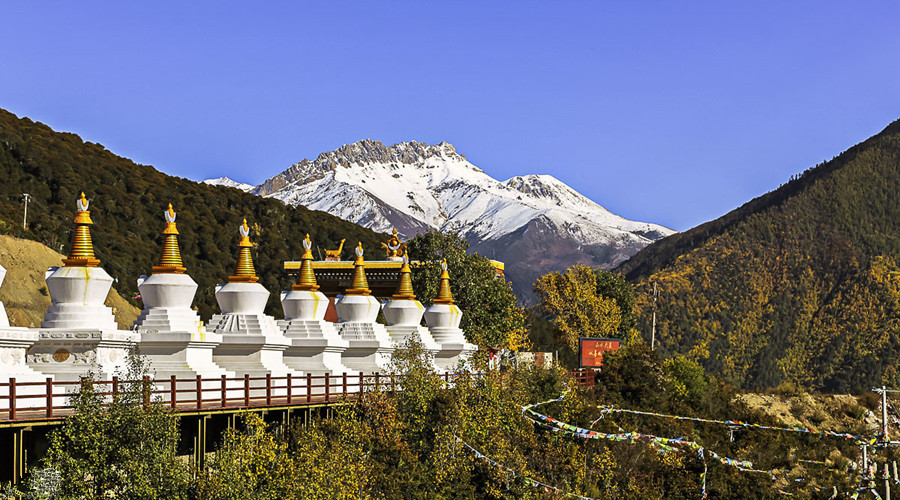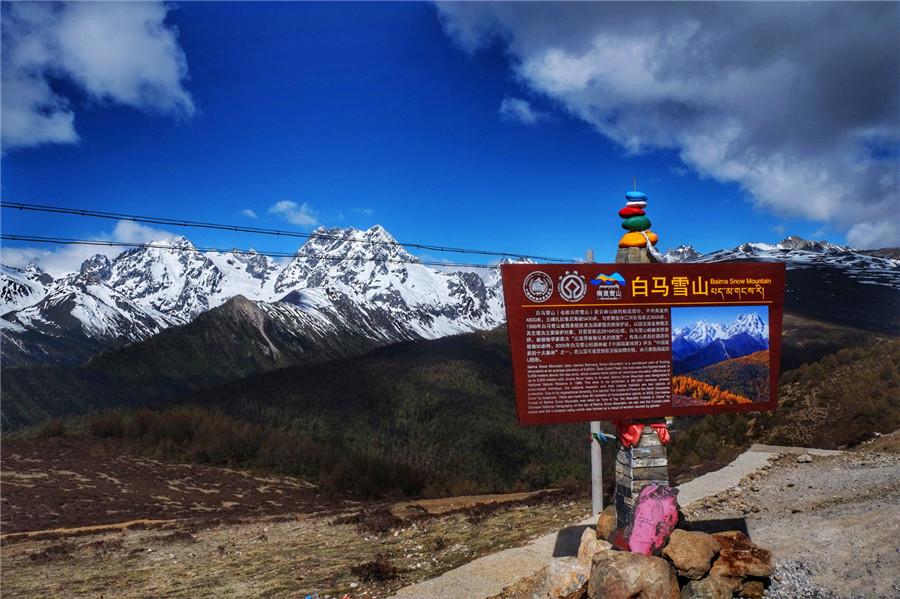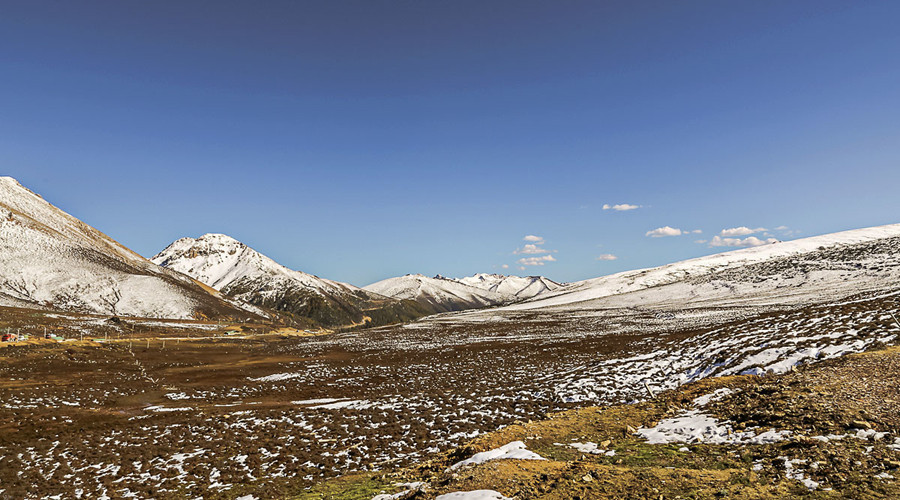
Baima Snow Mountain Pass in Deqin County, Diqing

Attraction Overview
Baima Snow Mountain Pass is the highest elevation that you must pass from Shangri-la to Meili Snow Mountain. The whole line of Shangrila-Deqin secondary road has been officially opened to traffic. In addition to winter, tourists can drive through Baima Snow Mountain to Meili Snow Mountain.
Chinese Name: 白马雪山垭口(Pinyin: Baima Xueshan Yakou)
Best Time to Visit: Summer and Autumn
Recommended Visiting Time: 1 Hour
Open Hours: All Day Long
Admission Fee: Free
Altitude: 4,292 m
Location: at the south-eastern part of Deqin County of Yunnan province
Baima Snow Mountain
Covering an area of 190,000 hectares, Baima Snow Mountain National Nature Reserve was established by the people’s government of Yunnan province in 1983, and was promoted to national level in 1988. It aims to protect the rare black snub-nosed monkeys, and natural views of the typical mountainous vertical zone (high mountains and canyons) of the Hengduan Mountain Range.
Baima Snow Mountain Pass
Baima Snow Mountain pass is the first snow-mountain pass over 4,000 meters above sea level on the Yunnan Tibet line. It is also the only pass of the Yunnan-Tibet line in the territory of Ynnan province, which is praised as the first danger on the Yunnan-Tibet line. It is also the highest elevation that you must pass from Shangri-la to Meili Snow Mountain. The whole line of Shangrila-Deqin secondary road has been officially opened to traffic. In addition to winter, tourists can drive through Baima Snow Mountain to Meili Snow Mountain.

Features
Baima Snow Mountain National Nature Reserve has a complete vertical sight of virgin forest and rare plants and animals. There are 20 peaks of more than 5.000 meters above sea level, among which the highest is Baima Snow Mountain covered with snow all year round, with the altitude of 5,430 meters. The nature reserve has the distinct features of a three-dimensional appeal of climate and vegetation. The dense mountain forest of Baima Snow Mountain provides the best place for wild animals to live, especially the wild species of usual mammals(47 species) and birds(45 species), and some animals peculiar to the Hengduan Mountains.





 7 Days GolfingTour
7 Days GolfingTour
 8 Days Group Tour
8 Days Group Tour
 8 Days Yunnan Tour
8 Days Yunnan Tour
 7 Days Shangri La Hiking
7 Days Shangri La Hiking
 11 Days Yunnan Tour
11 Days Yunnan Tour
 6 Days Yuanyang Terraces
6 Days Yuanyang Terraces
 11 Days Yunnan Tour
11 Days Yunnan Tour
 8 Days South Yunnan
8 Days South Yunnan
 7 Days Tea Tour
7 Days Tea Tour
 8 Days Muslim Tour
8 Days Muslim Tour
 12 Days Self-Driving
12 Days Self-Driving
 4 Days Haba Climbing
4 Days Haba Climbing
 Tiger Leaping Gorge
Tiger Leaping Gorge
 Stone Forest
Stone Forest
 Yunnan-Tibet
Yunnan-Tibet
 Hani Rice Terraces
Hani Rice Terraces
 Kunming
Kunming
 Lijiang
Lijiang
 Shangri-la
Shangri-la
 Dali
Dali
 XishuangBanna
XishuangBanna
 Honghe
Honghe
 Kunming
Kunming
 Lijiang
Lijiang
 Shangri-la
Shangri-la
 Yuanyang Rice Terraces
Yuanyang Rice Terraces
 Nujiang
Nujiang
 XishuangBanna
XishuangBanna
 Spring City Golf
Spring City Golf
 Snow Mountain Golf
Snow Mountain Golf
 Stone Mountain Golf
Stone Mountain Golf



